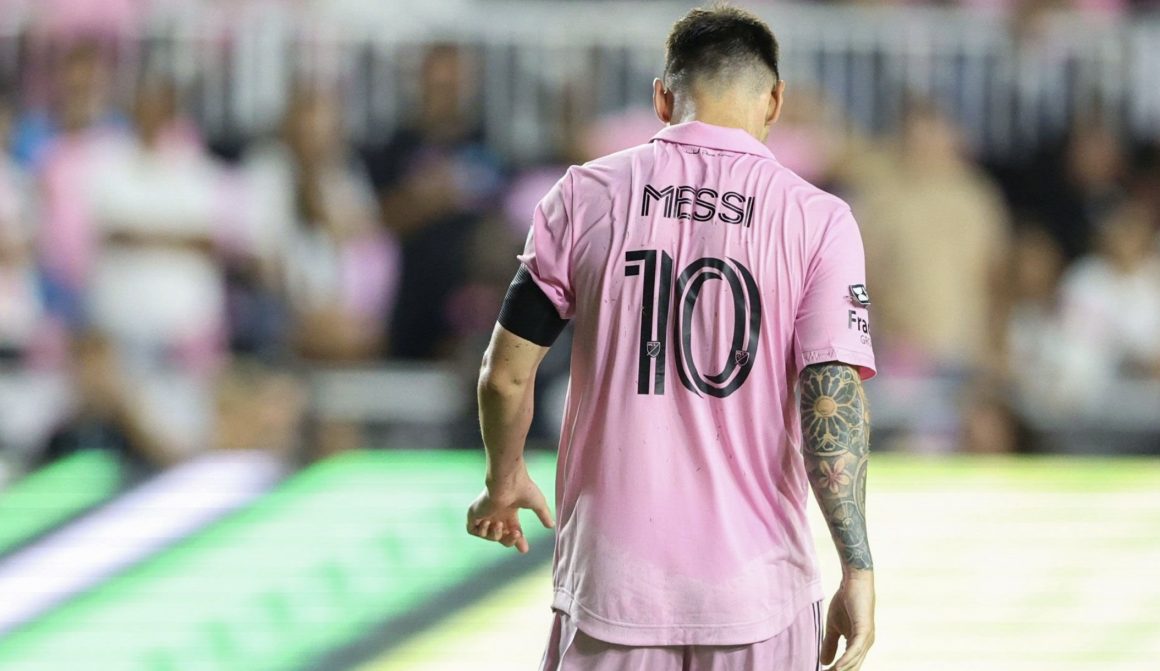
Lionel Messi: A legacy that lives on
By Marvellous Chukwukelu, October 20 2024—
On Dec. 28, 2022, Lionel Messi cemented his legacy as one of the greatest players the beautiful game of football has ever seen by leading the Argentine team to the 2022 FIFA World Cup, winning 4–2 on penalties. Two years later, he once again led Argentina to a 1–0 victory over Colombia in extra time to clinch the 2024 Copa Amèrica. This historic achievement not only helped Argentina surpass Uruguay as the nation with the most Copa Amèricas in history but allowed Messi to surpass former teammate, Dani Alves, becoming the player with the most football trophies in history. Mere months later, the enigmatic Argentinian has extended his record at the top by securing the MLS Supporters Shield — a title awarded to the best-performing team during the regular season — with Florida-based Inter Miami CF. Although it is easy to latch on to the titles, understanding the love and respect Messi commands with ease demands that we traverse through one of the most illustrious sporting careers the world has ever seen.
While many like to start from his hometown of Rosario, Argentina, the true story of the world’s greatest football player starts in the Catalonian city of Barcelona where, in September 2000, a 13-year-old Messi arrived to showcase his talents to the youth sporting team of footballing giants, FC Barcelona. Even though it took him just five minutes to convince the sporting director of his talents, the board of the team mysteriously delayed his signing for months. By mid-December, the father-son duo of Messis were fed up with the Catalan club’s antics and were ready to leave. Eventually, the sporting director, Carles Rexach, took matters into his own hands and invited the duo to the Pompeia Tennis Club in Barcelona where he signed the prodigy to the club on a napkin that was recently sold for £762,400 (about $1.3 million CAD). The rest, as they say, is history.
Over 17 years with FC Barcelona’s senior team, Messi remained the tactical centerpoint of one of the greatest football dynasties the world had ever seen. Under Josep ‘Pep’ Guardiola, who currently manages the English dynasty Manchester City, the dynamic forward would help FCB to the first-ever Spanish treble — when a team wins three major trophies in a single season — winning two Ballon D’Ors along the way. Even though the team suffered a slight bump in the form of the years following Guardiola’s departure, Messi would continue his free-scoring antics, notching 91 goals in a single calendar year in 2012, a world record that stands to this day. A few years later, coach Luis Enrique would arrive at FCB and with him came the notorious MSN attacking trio made up of Brazilian footballer Neymar, Uruguayan footballer Luis Suarez and Messi himself. Together, they would go on to win FC Barcelona their second-ever treble. Unfortunately, due to financial issues within the club, Messi had to leave FC Barcelona, first moving to Paris Saint-Germain in France before settling with Inter Miami CF in Florida.
While his club career was illustrious from the start, Messi’s international career had a more tortuous path. Although he had some early U23 and Olympic success with the Argentine National team, 2010 saw Germany knock them out of the World Cup which was followed by Uruguay knocking them out of the Copa America. 2014 brought no reprieve as it was Germany who once again denied them the World Cup, beating Argentina 1–0 in the final. Two crushing Copa America final losses to Chile in the following two years would cause Messi to briefly retire from international football before returning after a fan-led campaign. It wasn’t until 2021 that Messi would finally end his Argentinian trophy drought by beating Brazil 1–0 to lift the Copa America. The 2022 World Cup and 2024 Copa America which followed would also make Argentina the second nation ever to win a continental cup, a world cup and another continental cup consecutively, joining Spain’s legendary 2008–12 run.
Messi never needed to win all these titles to establish his legacy. For the millions of people who adore him, the verve with which he controlled the ball game after game, year after year was enough to convince them that they were watching one of the masters of football. The trophies were simply a confirmation of the settled fact. However, it is reasonable to assume if you play any sport with the level of skill Messi played football with, the side effect would be trophies beyond your wildest imagination. Perhaps that is why he can’t seem to stop winning them.
Before the advent of Messi, football had its greats whose records seemed untouchable. Then came La Pulga (The Flea). Therefore, it would be naive to assume that no players down the line will be capable of matching or superseding Messi’s records — even though that possibility is highly improbable. However, no matter how many goals they score or how many trophies they win, they will simply never be Lionel Messi.
